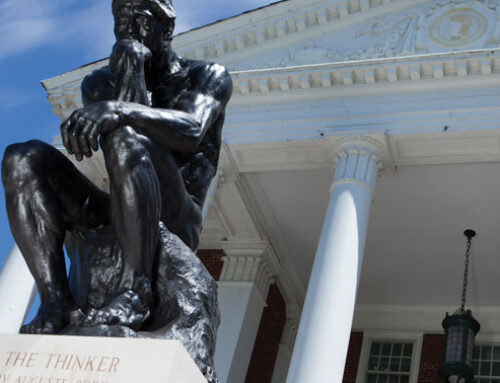By: T. Dylon Jones
It’s cold outside. Louisville basks in the beauty of all things autumnal, including the word “autumnal.” But Fall is evil, and the pretty, pretty colors on the trees are leaf-leprosy. Been enjoying walks through campus with a hot drink from the Tulip Tree Café? You’re a horrible person.
Thanksgiving approaches with gluttonous meals and ignored requests for homeless shelter volunteers. This happens every year; Fall drops contradicting experiences from its grey skies. You get delicious seasonal drinks, but you get head colds. You get red leaves, but you also get a red nose. You get a nostalgic evening at grandma’s, but you get arrested for public intoxication that night. It’s all a cliché.
So I have some advice: read poetry. It’s freaking Fall. You might as well.
- “What Narcissism Means to Me,” by Tony Hoagland
Tony Hoagland is the funniest living poet. His wit won him the 2005 Mark Twain Award. With “What Narcissism Means to Me,” Hoagland provides laughs, frowns and thoughtful nods. His observations on American culture are genuine, unapologetic and provocative. This book contains some of the most engaging, poignant social commentary ever written. Hoagland will visit UofL on November 21 as part of the Anne and William Axton Reading Series. He will read from his work at 7 p.m. in the Chao Auditorium. Students are invited to submit work for his master class. More information is available at http://louisville.edu/english/creative-writing.
- “Death-Defying Acts,” by Erin Keane
Erin Keane is a favorite of Louisvillian literature. She graduated from Bellarmine University and Spalding University, and now works as an arts and humanities reporter for WFPL. In “Death-Defying Acts,” her second poetry collection, Keane uses the weird appeal of a circus to draw readers into a vivid, strange world. The cohesive collection is a meta-circus act, with different performers exposing complex predicaments in the human condition. Readers are seduced into relating to an aerialist, a clown and even a lion, but they learn something about themselves.
- “Duende,” by Tracy K. Smith
The great Spanish poet Frederico Garcia Lorca famously tried to describe “duende,” that dark artistic motivation so many of us feel. It loosely means “to have a soul,” but the true definition of duende is obscure. Smith embarks on the noble journey of interpreting duende in these 30 poems. “Duende” explores different perspectives, politics and nationalities, leaving us with a sense of unity.
And I guess you could get a scarf and look at leaves, too. I think pretty words are better. Staring at paper is less insane than staring at plants; trees are just books that aren’t books yet. Don’t let them fool you with their standing and shading and photosynthesizing. Stupid trees. I’m glad they’re dying.
Read poetry.





